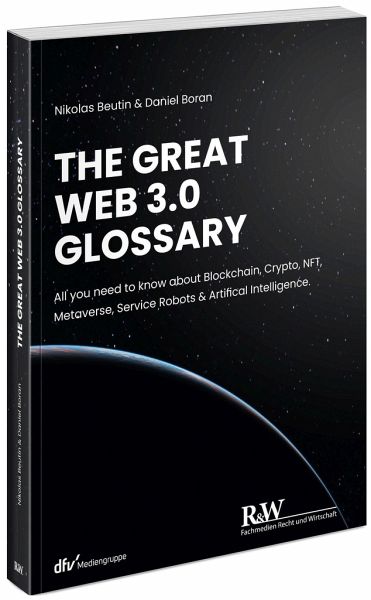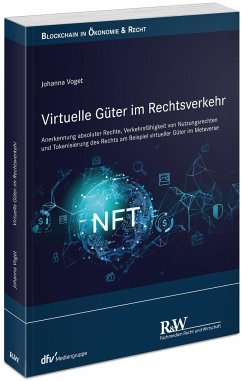
The Great Web 3.0 Glossary
All you need to know about Blockchain, Crypto, NFT, Metaverse, Service Robots & Artifical Intelligence
Versandkostenfrei!
Versandfertig in 3-5 Tagen
39,00 €
inkl. MwSt.
Weitere Ausgaben:

PAYBACK Punkte
0 °P sammeln!
Metaverse, Non-Fungible Tokens (NFTs), Cryptocurrencies, Blockchain, Artificial Intelligence (AI), Service Robots etc. are a rapidly expanding field with an ever-increasing number of terms and community-specific jargon. A new term is not always accompanied by something truly novel. In addition to verbal "pseudo-innuendos" and "crypto-slang" introduced with the intent of attracting attention quickly, there are several significant new developments. The issue with this development is that the risk of "Babylonian language confusion" is growing exponentially. Our observations indicate that this ris...
Metaverse, Non-Fungible Tokens (NFTs), Cryptocurrencies, Blockchain, Artificial Intelligence (AI), Service Robots etc. are a rapidly expanding field with an ever-increasing number of terms and community-specific jargon. A new term is not always accompanied by something truly novel. In addition to verbal "pseudo-innuendos" and "crypto-slang" introduced with the intent of attracting attention quickly, there are several significant new developments. The issue with this development is that the risk of "Babylonian language confusion" is growing exponentially. Our observations indicate that this risk is particularly prevalent in the dialogue between science and practice. This book hopes to contribute to the clarification with quick access to all key terms. Obviously, many online marketplaces, platforms, encyclopedias, and glossaries already exist. However, our pre-book analysis has revealed that neither is even close to completion, sometimes with imprecise language and often with contradictory definitions and explanations. This glossary provides quick access for managers, students, and professors alike who are faced with the topics in their daily work. Students may keep track of the web 3.0's numerous terms as they study it. Instructors, teachers, and professors may use it as a guide for a consistent use of Metaverse, NFT, Cryptocurrency, and Blockchain terminology. Although, the more than 1,300 explanations of the individual terms are scientifically based, the focus is on easy understanding of the terms. The authors have made an effort to provide clear and concise definitions, an application-focused perspective, and simple language.
Dieser Artikel kann nur an eine deutsche Lieferadresse ausgeliefert werden.













